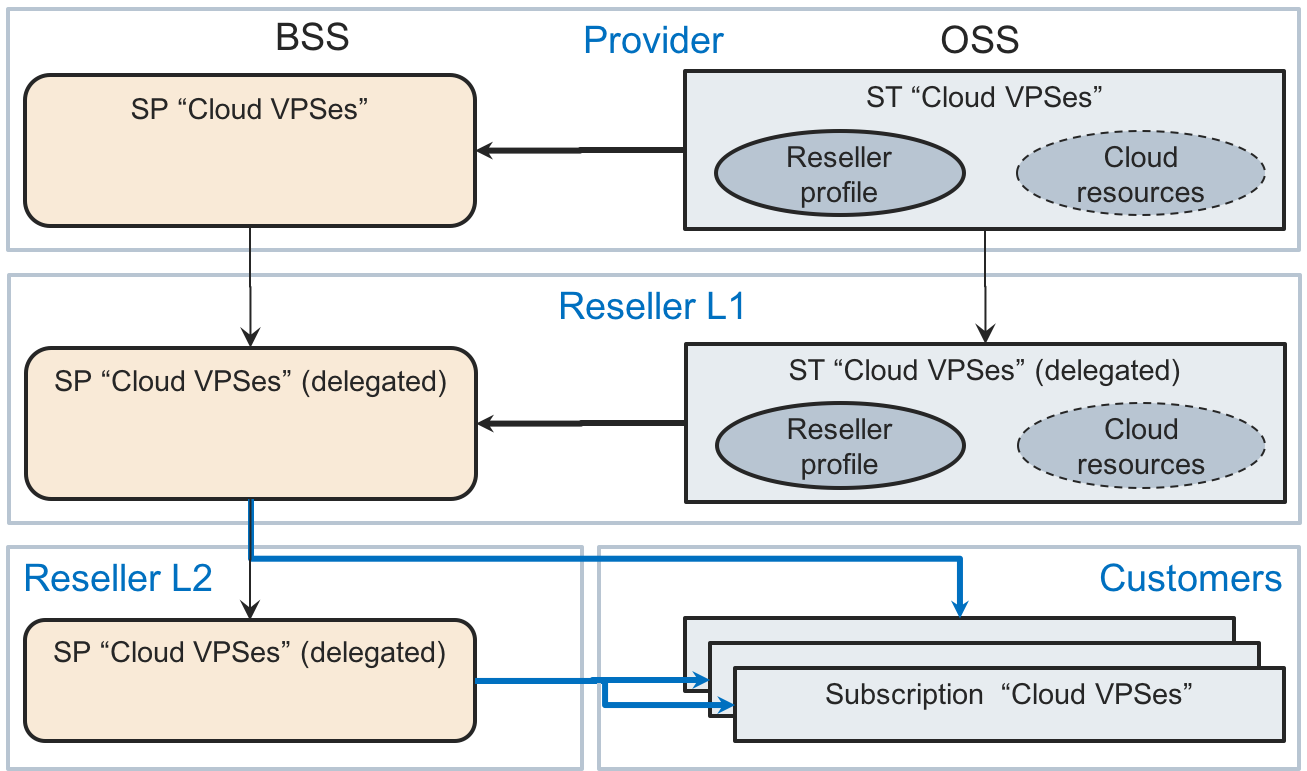Table Of Contents
Application Packaging Standard
Last updated 18-Mar-2019Customization for Sales Channels¶
The platform allows providers to involve resellers into the sales process. The provider’s direct resellers (first level of resellers or resellers L1) can have their own sub-resellers, that are L2 resellers, and so on.
An application can help the provider present every reseller or resellers of a certain level, for example, only L1 resellers, as separate active participants with their own credentials and other reseller properties.
In this document:
Delegated Products¶
When working with value-added resellers (VARs), providers often delegate service templates (products at the OSS level) and service plans (products at the BSS level) to VARs, thus making them able to resell that products through various sales channels.
APS allows resellers to customize the application provisioning by means of an APS reference resource that implements the ResellerProfile APS type. Once the provider adds a resource type based on that resource to a delegated service template, every reseller whom that service template is delegated will be able to set the properties defined in the implemented APS type. Such a configuration can influence the provisioning process for the customers of that reseller.
Note
To allow a reseller to customize the provisioning process, the reseller must get access to the reseller profile resource through the delegated service template. It is not sufficient to have a delegated service plan.
Typical Sales Channels Scheme¶
For a big provider, it is typical to have two reseller layers, L1 resellers and L2 resellers. In the strategy considered here, we suppose the provider allows customization of the provisioning process only to L1 resellers.

The strategy is implemented through the following steps.
- The provider creates an original service template (ST) and a service plan (SP) based on it.
- The provider delegates to L1 resellers both product components, the SP to resell and the ST to customize the provisioning process.
- Resellers L1 discover the ST and SP delegated by their vendor (the provider). The resellers use the former to customize the provisioning process and the latter to sell application services to their direct customers.
- Resellers L1 delegate to their sub-resellers (L2 resellers) the SP delegated earlier by the provider.
- Resellers L2 cannot customize the provisioning process since their vendor (L1 reseller) did not delegate a service template. However, they can sell the delegated SP to their direct customers. So, the provisioning process will be based on the customization done by the vendor (L1 reseller).